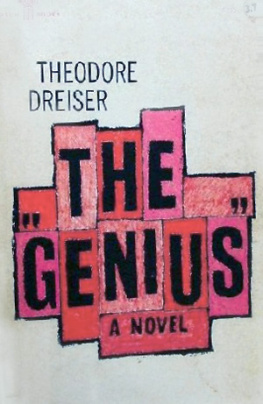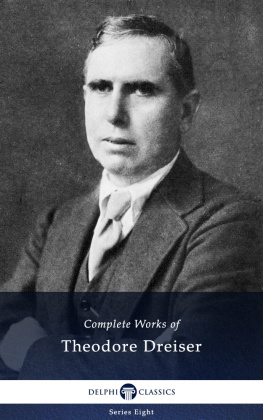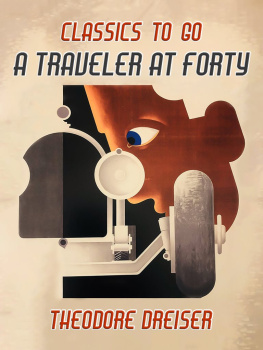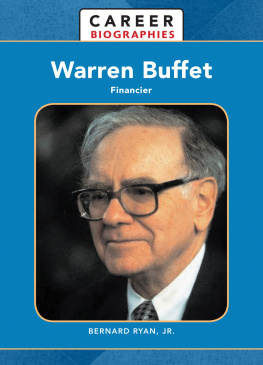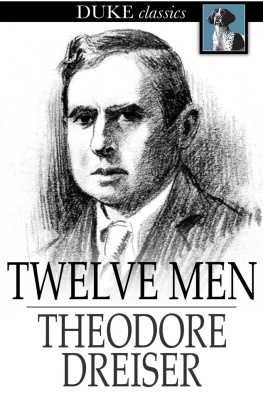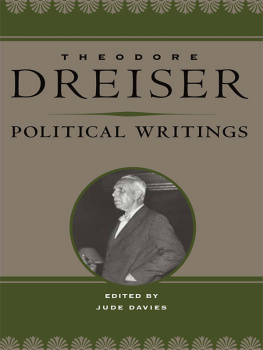Theodore Dreiser - The Financier
Here you can read online Theodore Dreiser - The Financier full text of the book (entire story) in english for free. Download pdf and epub, get meaning, cover and reviews about this ebook. genre: Prose. Description of the work, (preface) as well as reviews are available. Best literature library LitArk.com created for fans of good reading and offers a wide selection of genres:
Romance novel
Science fiction
Adventure
Detective
Science
History
Home and family
Prose
Art
Politics
Computer
Non-fiction
Religion
Business
Children
Humor
Choose a favorite category and find really read worthwhile books. Enjoy immersion in the world of imagination, feel the emotions of the characters or learn something new for yourself, make an fascinating discovery.

- Book:The Financier
- Author:
- Genre:
- Rating:5 / 5
- Favourites:Add to favourites
- Your mark:
- 100
- 1
- 2
- 3
- 4
- 5
The Financier: summary, description and annotation
We offer to read an annotation, description, summary or preface (depends on what the author of the book "The Financier" wrote himself). If you haven't found the necessary information about the book — write in the comments, we will try to find it.
The Financier — read online for free the complete book (whole text) full work
Below is the text of the book, divided by pages. System saving the place of the last page read, allows you to conveniently read the book "The Financier" online for free, without having to search again every time where you left off. Put a bookmark, and you can go to the page where you finished reading at any time.
Font size:
Interval:
Bookmark:
Theodore Dreiser
The Financier
Chapter I
The Philadelphia into which Frank Algernon Cowperwood was born was a city of two hundred and fifty thousand and more. It was set with handsome parks, notable buildings, and crowded with historic memories. Many of the things that we and he knew later were not then in existencethe telegraph, telephone, express company, ocean steamer, city delivery of mails. There were no postage-stamps or registered letters. The street car had not arrived. In its place were hosts of omnibuses, and for longer travel the slowly developing railroad system still largely connected by canals.
Cowperwoods father was a bank clerk at the time of Franks birth, but ten years later, when the boy was already beginning to turn a very sensible, vigorous eye on the world, Mr. Henry Worthington Cowperwood, because of the death of the banks president and the consequent moving ahead of the other officers, fell heir to the place vacated by the promoted teller, at the, to him, munificent salary of thirty-five hundred dollars a year. At once he decided, as he told his wife joyously, to remove his family from 21 Buttonwood Street to 124 New Market Street, a much better neighborhood, where there was a nice brick house of three stories in height as opposed to their present two-storied domicile. There was the probability that some day they would come into something even better, but for the present this was sufficient. He was exceedingly grateful.
Henry Worthington Cowperwood was a man who believed only what he saw and was content to be what he wasa banker, or a prospective one. He was at this time a significant figuretall, lean, inquisitorial, clerklywith nice, smooth, closely-cropped side whiskers coming to almost the lower lobes of his ears. His upper lip was smooth and curiously long, and he had a long, straight nose and a chin that tended to be pointed. His eyebrows were bushy, emphasizing vague, grayish-green eyes, and his hair was short and smooth and nicely parted. He wore a frock-coat alwaysit was quite the thing in financial circles in those daysand a high hat. And he kept his hands and nails immaculately clean. His manner might have been called severe, though really it was more cultivated than austere.
Being ambitious to get ahead socially and financially, he was very careful of whom or with whom he talked. He was as much afraid of expressing a rabid or unpopular political or social opinion as he was of being seen with an evil character, though he had really no opinion of great political significance to express. He was neither anti- nor pro-slavery, though the air was stormy with abolition sentiment and its opposition. He believed sincerely that vast fortunes were to be made out of railroads if one only had the capital and that curious thing, a magnetic personalitythe ability to win the confidence of others. He was sure that Andrew Jackson was all wrong in his opposition to Nicholas Biddle and the United States Bank, one of the great issues of the day; and he was worried, as he might well be, by the perfect storm of wildcat money which was floating about and which was constantly coming to his bankdiscounted, of course, and handed out again to anxious borrowers at a profit. His bank was the Third National of Philadelphia, located in that center of all Philadelphia and indeed, at that time, of practically all national financeThird Streetand its owners conducted a brokerage business as a side line. There was a perfect plague of State banks, great and small, in those days, issuing notes practically without regulation upon insecure and unknown assets and failing and suspending with astonishing rapidity; and a knowledge of all these was an important requirement of Mr. Cowperwoods position. As a result, he had become the soul of caution. Unfortunately, for him, he lacked in a great measure the two things that are necessary for distinction in any fieldmagnetism and vision. He was not destined to be a great financier, though he was marked out to be a moderately successful one.
Mrs. Cowperwood was of a religious temperamenta small woman, with light-brown hair and clear, brown eyes, who had been very attractive in her day, but had become rather prim and matter-of-fact and inclined to take very seriously the maternal care of her three sons and one daughter. The former, captained by Frank, the eldest, were a source of considerable annoyance to her, for they were forever making expeditions to different parts of the city, getting in with bad boys, probably, and seeing and hearing things they should neither see nor hear.
Frank Cowperwood, even at ten, was a natural-born leader. At the day school he attended, and later at the Central High School, he was looked upon as one whose common sense could unquestionably be trusted in all cases. He was a sturdy youth, courageous and defiant. From the very start of his life, he wanted to know about economics and politics. He cared nothing for books. He was a clean, stalky, shapely boy, with a bright, clean-cut, incisive face; large, clear, gray eyes; a wide forehead; short, bristly, dark-brown hair. He had an incisive, quick-motioned, self-sufficient manner, and was forever asking questions with a keen desire for an intelligent reply. He never had an ache or pain, ate his food with gusto, and ruled his brothers with a rod of iron. Come on, Joe! Hurry, Ed! These commands were issued in no rough but always a sure way, and Joe and Ed came. They looked up to Frank from the first as a master, and what he had to say was listened to eagerly.
He was forever pondering, ponderingone fact astonishing him quite as much as anotherfor he could not figure out how this thing he had come intothis lifewas organized. How did all these people get into the world? What were they doing here? Who started things, anyhow? His mother told him the story of Adam and Eve, but he didnt believe it. There was a fish-market not so very far from his home, and there, on his way to see his father at the bank, or conducting his brothers on after-school expeditions, he liked to look at a certain tank in front of one store where were kept odd specimens of sea-life brought in by the Delaware Bay fishermen. He saw once there a sea-horsejust a queer little sea-animal that looked somewhat like a horseand another time he saw an electric eel which Benjamin Franklins discovery had explained. One day he saw a squid and a lobster put in the tank, and in connection with them was witness to a tragedy which stayed with him all his life and cleared things up considerably intellectually. The lobster, it appeared from the talk of the idle bystanders, was offered no food, as the squid was considered his rightful prey. He lay at the bottom of the clear glass tank on the yellow sand, apparently seeing nothingyou could not tell in which way his beady, black buttons of eyes were lookingbut apparently they were never off the body of the squid. The latter, pale and waxy in texture, looking very much like pork fat or jade, moved about in torpedo fashion; but his movements were apparently never out of the eyes of his enemy, for by degrees small portions of his body began to disappear, snapped off by the relentless claws of his pursuer. The lobster would leap like a catapult to where the squid was apparently idly dreaming, and the squid, very alert, would dart away, shooting out at the same time a cloud of ink, behind which it would disappear. It was not always completely successful, however. Small portions of its body or its tail were frequently left in the claws of the monster below. Fascinated by the drama, young Cowperwood came daily to watch.
One morning he stood in front of the tank, his nose almost pressed to the glass. Only a portion of the squid remained, and his ink-bag was emptier than ever. In the corner of the tank sat the lobster, poised apparently for action.
The boy stayed as long as he could, the bitter struggle fascinating him. Now, maybe, or in an hour or a day, the squid might die, slain by the lobster, and the lobster would eat him. He looked again at the greenish-copperish engine of destruction in the corner and wondered when this would be. To-night, maybe. He would come back to-night.
Font size:
Interval:
Bookmark:
Similar books «The Financier»
Look at similar books to The Financier. We have selected literature similar in name and meaning in the hope of providing readers with more options to find new, interesting, not yet read works.
Discussion, reviews of the book The Financier and just readers' own opinions. Leave your comments, write what you think about the work, its meaning or the main characters. Specify what exactly you liked and what you didn't like, and why you think so.

